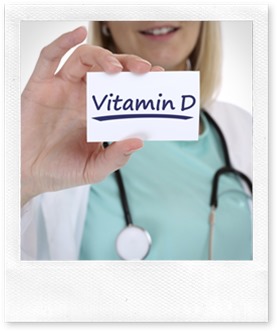In the last 3.5 decades, research has proposed a link between several cancers and lower serum levels of vitamin D. Multiple epidemiologic studies have found inverse associations between serum levels of 25-hydroxyvitamin D [25OH)D] concentration and the risk of many cancers including breast cancer, colorectal cancer and prostate cancer. In one randomized controlled trial, women who were given vitamin D and calcium had a 60% reduced incidence in all non-skin cancers compared to those women in the placebo group.[i]
The purpose of the current study was to be more precise in determining any association between 25(OH)D concentration and the risk of non-skin cancer in women 55 years and older. Two different cohorts were used. The first, N=1,169, was one from a randomized controlled clinical trial in Nebraska with a median level of serum vitamin D of 30 ng/mL. The second was from a prospective cohort study of individuals living in 52 countries although 90% were in either the US or Canada, N=1,135, with an average serum D level of 48 ng/ml. By using this approach, the analysis was able to be done across a broad range of 25(OH)D serum levels.
The incidence of all invasive cancers excluding skin cancer was evaluated over several years with a median of 3.9 years was compared in relationship to 25 (OH)D concentrations. The incidence of cancer was lower at higher concentrations of 25(OH)D levels and women with concentrations of 40 ng/ml or more had a 67% lower risk of cancer than women with levels < 20 ng/ml.
 Commentary: The results of this analysis support the importance of serum levels and cancer risk and thus direct us more precisely to a target serum level of vitamin D to optimize cancer prevention. The significant risk reduction comes at levels that are considerably higher than the >20 ng/ml considered adequate for bone health, which is the minimum recommended by the Institute of Medicine. I urge patients and practitioners to pay close attention to the units used by their labs. For example, 12-20 ng/ml = 30-50 nmol/L.
Commentary: The results of this analysis support the importance of serum levels and cancer risk and thus direct us more precisely to a target serum level of vitamin D to optimize cancer prevention. The significant risk reduction comes at levels that are considerably higher than the >20 ng/ml considered adequate for bone health, which is the minimum recommended by the Institute of Medicine. I urge patients and practitioners to pay close attention to the units used by their labs. For example, 12-20 ng/ml = 30-50 nmol/L.
References
Sharon L. McDonnell, Carole Baggerly, Christine B. French, Leo L. Baggerly, Cedric F. Garland, Edward D. Gorham, Joan M. Lappe, Robert P. Heaney. Serum 25-Hydroxyvitamin D Concentrations ≥40 ng/ml Are Associated with >65% Lower Cancer Risk: Pooled Analysis of Randomized Trial and Prospective Cohort Study. PLOS ONE, 2016; 11 (4): e0152441 DOI: 10.1371/journal.pone.0152441
[i] Lappe J, Travers-Gustafson D, Davies K, et al. Vitamin D and calcium supplementation reduces cancer risk: results of a randomized trial. Am J Clin Nutr 2007; 85(6):1586-1591.

